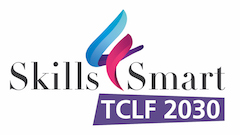Collaboration between companies and high schools has been lately an important type of partnership. The advantages of this type of collaboration appears on both side. Companies can access the pool of young and talented workforce and influence their education while students get free teaching and learning materials as well as early work experience, which in the future may result in more attractive job offers. These collaborations between schools and companies are very important for the creation of long-lasting partnerships.
Alternanza Scuola Laboro
During their school year, students work as interns in companies for a few months. This project, so called “Alternanza Scuola Lavoro”, is included in the last three high-school years.
Cooperation between schools and companies is gaining in importance and enables students to achieve a successful education and a promising working career in the future. What is innovative in this project is that schools also involve families, who actively participate in activities promoted by schools and companies together.
Companies and schools agree about the relevance of technical attitudes learnt thanks to this collaboration, which improves students’ future job opportunities.
Italian Ministry of Education published in 2016 an initiative “La Buona Scuola” that encourages new investments in this type of partnerships and states that “Alternanza Scuola Lavoro” will be mandatory for a predetermined amount of hours. This rule aims to emphasize the necessity of practical attitudes, values, and resources within personal curricula.
Nowadays, schools need to collaborate with companies, in order to continuously update their teaching programs and keep up with the changes of the job world, especially in the fashion industry. In a nutshell, the progress in the education sector come from companies’ inputs. Therefore, the fashion industry should actively collaborate with the vocational education and training system at financial and managerial levels, in order to express directly their needs and maintain influence over the training programme and offered competences of education providers of various levels. On the other hand, students should benefit from a comprehensive education provided by schools in order to easily find a job.
The aim of this initiative is to remind that this type of collaboration between companies and education providers should train workers and not individuals, and that it is necessary to focus on adding professional skills to one’s training.
In order to facilitate education, schools find partnerships with socio-economic institutions, companies, and professional workers’ associations, with the aim to:
- identify study courses and curricula;
- design lessons, internships and “alternanza scuola lavoro” projects;
- create opportunities to apply what has been learnt;
- develop new operative and organizational teaching approaches.
In exchange, at work students can learn and get involved in fundamental social partnerships, that provide them with new knowledge about work management, company functioning, markets, job-contract regulations and long-lasting developments.
Higher Technical Institutes (ITS): a successful study case
Higher technical institutes are Italian schools, which aim is to provide a two-year permanent technological offer and to comply with European, national and regional economic plans.
ITSs could be considered like “Participatory Foundation”, namely an institute which offers lessons in a specific educational field and high-level training for companies. Moreover, it offers a teaching activity based on job projects, work simulations and laboratories which train super-specialist workers.
ITSs are special high-tech schools and their aim is to train high-tech and high-touch professionals. These institutes are collocated at the same level of universities and train students at a post-diploma level.
They are supposed to last two years, with 2 000 hours per course, focusing on laboratory activities and mandatory internships, in a foreign or domestic country.50% of ITS courses use Industry 4.0 technologies and are centred on companies’ future needs in technologies. Teachers also use specific methods (e.g. Design Thinking), in order to learn how to work with i4.0 technologies. Companies offer their collaboration, so that teachers can learn i4.0 features’ usage to design innovative products.
Among the courses lasting up to 800 hours, 30% of them are physically carried out in companies. This is a key factor, because students can participate in tailor-made projects. Internships are the first work experience for super-specialist workers.
The participants can benefit from this partnership for example though:
- Companies’ workers can profit from high-level education courses that are carried out by ITSs;
- Up to 30% of students’ training takes place in companies, where high-specialized technicians receive their education. In this way, high-skilled workers are directly part of their working teams offering their knowledge about the industry. High-expertise lessons and workshops teach students how to rapidly solve problems and provide innovative solutions;
- Companies, trade associations and university professors collaborate to design teaching courses. Students can therefore acquire updated competences, which enable them to keep up with companies’ demand.
- Companies can propose projects that can solve actual problems and consider future workforce. Students can also participate in apprenticeship projects for education and research, which in consequence, will provide recruiting inducements and educational financial supports;
Professors obtain field expertise, while working as financial advisors. Furthermore, university professors prepare students to join the job world;
Summarising, ITSs are specifically meant to combine knowledge and know–how and enable companies to reduce the time used for onboarding of young workers in the factories due to early start and introduction of future undergraduates during their internships.
Politecnico Calzaturiero


